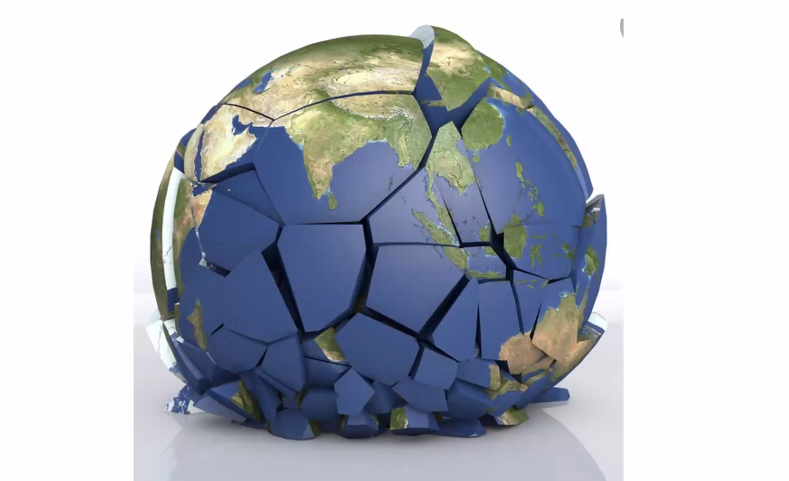|
The Integrity of the Whole
Ah, what a strange value, don’t you think? When the earth functions with this framework, it is the long view, the grandness of being, that springs to mind. Yet I’d like to suggest that since we are little wholes inside bigger wholes, that creating that resonance, that alignment, and coherence, is our key contribution to the integrity of the whole. As little wholes, each of our actions brings into being more and stronger resonance or not. If we choose dissonance then the ripples are small and almost unnoticed, they go flailing out disturbing the resonant whole and dissipate. If we choose harmony, then those tiny ripples spread out and join the others, and we ride a gentle wave, almost unnoticed. Each of our actions seem so tiny, so unimportant, so unnoticed. In my studies of ethics, these insignificant actions don’t ever seem to rise. Most discussions of ethics want to speak to the bigger actions, the ones we see and the ones that create very big ripples, yet life, LIFE is composed of many, many smaller ripples, the ones that we do every day and most often don’t even see. For me, the ethical life is composed of context. It is context that informs us of the larger whole. It is context that can be misleading, and it is context that offers the mirror to see if our tiny ripples support LIFE or flies in the face it, dampening that possibility. The example I’ll use is the teaching of distrust. We have whole industries dedicated to this, take marketing, for example. “Let the buyer beware” suggests that only fools believe what they are told. If it’s too good to be true, it probably isn’t. This is the institutionalizing of the corruption of innocence. It’s a way to ‘protect’ from and ’teach’ about the ugly facts of disappointment and misunderstandings we rationalize, but without developing the skills of discernment. We teach distrust by not keeping our word, by making promises we don’t keep, by rewarding impossible promises and punishing truth tellers – politics is the fertile ground for this practice. We teach distrust when we laugh at humor that showcases the ‘fool’ being shown the results of her misplaced trust as the chair is being pulled out from under her. Nature never lies. She always tells us what works, we have learned not to listen, and we have believed that we could ignore her, which we have done, ignoring Dynamic Stability, but that’s the subject for another time. We have gotten so good at believing our own cynicism that we don’t even notice what we are doing. Harryette Mullen, in her poem, We Are Not Responsible, showcases this so very well when she says in her first two verses: We are not responsible for your lost or stolen relatives. We cannot guarantee your safety if you disobey our instructions. We do not endorse the causes or claims of people begging for handouts. We reserve the right to refuse service to anyone. Your ticket does not guarantee that we will honor your reservations. In order to facilitate our procedures, please limit your carrying on. Before taking off, please extinguish all smoldering resentments. Here she shows just how deeply we work to make sure people understand the ‘appropriate’ level of trust, so, we rationalize, we are not responsible…. Steven R. Covey, in his book The Speed of Trust, shows the damage and the ineffectiveness not trusting creates in the workplace. Our lives are built on trust – those lines on the highway – we trust other drivers to obey them, and so many other instances where trust makes things work, yet we want to defy it – to what end? Every time we teach distrust, we tear at the fabric of the whole – destroying its integrity. We have been taught in the past few decades that people are NOT of good will. Our entire form of government is based on trusting that people are of good intent, that is why differences of opinion are so important. We need other eyes to see the whole – IF – the intent is to strengthen the whole to deepen the alignment with LIFE. Now we are being taught that there is only ONE way, but that is not how nature works. It is having many ways that gives nature her resilience, so that we can trust that she will keep her balance even if things change. We are so inured to noticing how we teach distrust, we desperately need each other to begin to sharpen our discernment. We must hone that skill of seeing when trust is being destroyed and develop the social scaffolding to support each other in acting on that discernment. We do this much better and faster when we engage with others in a commitment to develop and build trust, than when we go it alone. Begin to open your own eyes by actively noticing when our culture is teaching distrust. Find someone or someones who are willing to join you in this discovery, and then seek, together, to build countermeasures. This is such a crucial action to take at this time! This is a hero’s journey.
0 Comments
Leave a Reply. |
Details
Kathryn Alexander, MARegenerative approaches require a deep integration with nature. Collaboration requires different structures and ways of working together. If we want different results we have to do things differently! Living regeneratively - living with nature brings forth our spiritual capacities as we act so all life thrives. Categories
All
Archives
February 2024
|


 RSS Feed
RSS Feed